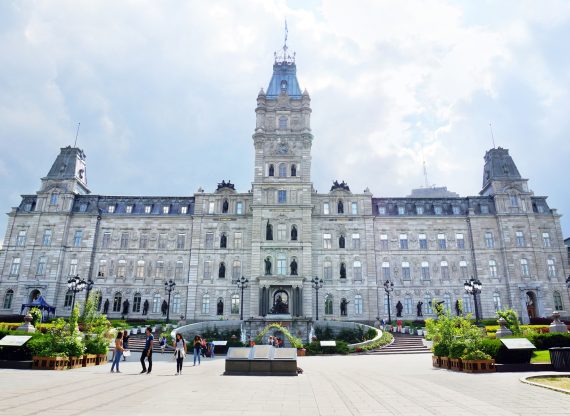The Quebec Budget: Skyrocketing deficit and a slow path to balance, deplores the MEI

- Spending has grown by 48.0 per cent under the Legault government.
- The MEI lauds the government’s decision to undergo an expenditure review starting in Spring 2024.
Quebec City, March 12, 2024 – A skyrocketing deficit and pushing back the return to balanced budgets will prove expensive for future generations, deplores the Montreal Economic Institute.
“Each year that passes between now and the return to budgetary balance represents billions of dollars more on the bill that we’re leaving to future generations,” explains Renaud Brossard, Vice President of Communications at the MEI. “By pushing budgetary balance back to 2030, the Legault government is indicating that it prefers to spend today rather than build a legacy for our youth.”
The Quebec government expects that it will run a deficit of $11.0 billion this year. This represents $8.0 billion more than it was projecting in November.
It is estimated that the government will return to budgetary balance in 2029-2030. A detailed plan to return to balance will be presented in the next budget. In the meantime, it will accumulate a total deficit of $31.6 billion.
Interest payments on the Quebec debt will reach an estimated $9.8 billion this year. This represents an increase of 27.1 per cent compared to pre-pandemic levels. It is more than the amount allocated to the Department of Families this year.
Compared to the size of its economy, Quebec is the second most indebted province in the country, behind Newfoundland and Labrador.
The provincial government’s spending will total $157.6 billion this year, which is an increase of 48.0 per cent since the Legault government took office.
The government has announced its intent to review government spending starting this Spring. The MEI had recommended the implementation of such a review in its latest prebudget submission.
“Over the years, the Legault government has shown us just how spendthrift it is, increasing expenditures by 48.0 per cent in six years,” says Mr. Brossard. “By undergoing an expenditure review, the government is giving itself the tools it needs to identify and eliminate waste.”
As part of its expenditure review process, the government will review expenditure within government departments and government bodies, as well as the various subsidies handed out through the tax system.
The federal government had established such a committee following the 2008-2009 financial crisis. This ultimately allowed it to identify five billion dollars in recurring savings.
In Quebec, one avenue could be the growth in the number of civil servants and other government employees, indicates the research institute.
Premier François Legault had campaigned on the elimination of 5,000 civil service positions in 2018. Today, the government has 9,838 more civil servants than when it took office. In all, there are 72,806 more government employees than in 2018-2019.
* * *
The MEI is an independent public policy think tank with offices in Montreal and Calgary. Through its publications, media appearances, and advisory services to policy-makers, the MEI stimulates public policy debate and reforms based on sound economics and entrepreneurship.
– 30 –
Interview requests
Célia Pinto Moreira
Communications Advisor
Cell: 514 703-0502

